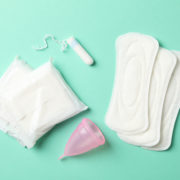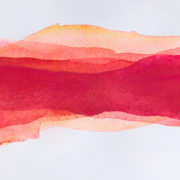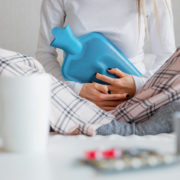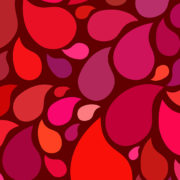Exercise is a natural mood booster that can also help to lighten your period flow, and reduce bloating and other PMS symptoms. When you have your period you can continue with your regular exercise routine if you want to! If you feel fatigued, it’s totally fine to listen to your body and take it easy.
Intense or strenuous exercise can cause small changes in your hormone levels, which can lead to light bleeding between periods or even stop your period completely. This is a common issue for preteen and teenage athletes and dancers. If you think this might apply to you, bring it up with your pediatrician, doctor, or gynecologist.
Can I play sports with my period?
Yes! Your period should not limit you from playing any sports or activities. In fact, it may actually help with PMS symptoms! Tampons or menstrual cups are great for playing sports or swimming, and many people find them more convenient than pads.
Swimming during your period
You can absolutely swim when you have your period! There are certain period products that work really well for swimming including tampons and menstrual cups. Usually, the water pressure decreases your flow while you are swimming, so wearing a tampon or menstrual cup will ensure that you are protected while in the water. Once you come out of the water, your flow will return to normal. A fun tip about swimming is that exercise may also help reduce menstrual cramps, so jump right in and have fun! Helpful Tip: tuck the tampon string in between your labia to keep it from hanging outside your swimsuit.
Is it normal to feel tired or unmotivated when I am getting or having my period?
During your period or PMS, you might feel tired and lack motivation to exercise. You actually may find that working out gives you more energy, or you might just need to take it easy. Listen to your body. Working out with a friend can help you stay motivated.
Nutrition to Support your Period
When you are well-hydrated, and eat plenty of fruit, veggies, and whole grains this will provide your body with good nutrition overall. The result? Your whole body, as well as your reproductive system, will feel much better.
How much water should I drink during my period?
You’re more likely to become dehydrated when you’re having your period, which can cause fatigue, dizziness, and muscle cramps. Your period can also cause you to retain water (feeling bloated) which means that fluids leak into the surrounding tissues, instead of staying in your blood vessels. Drinking at least eight glasses of water per day can help combat bloating and dehydration, as well as replenish your body and mind!
Only a few foods have been scientifically proven to be good for period cramps and PMS. Cranberries can help prevent recurrent UTIs (Urinary Tract Infections).
For menstrual cramps, the vitamins B6, B12, as well as Zinc, Magnesium, and Valerian root have all been proven to help. Ideally, you want to get these vitamins and minerals from dietary sources rather than supplements.








